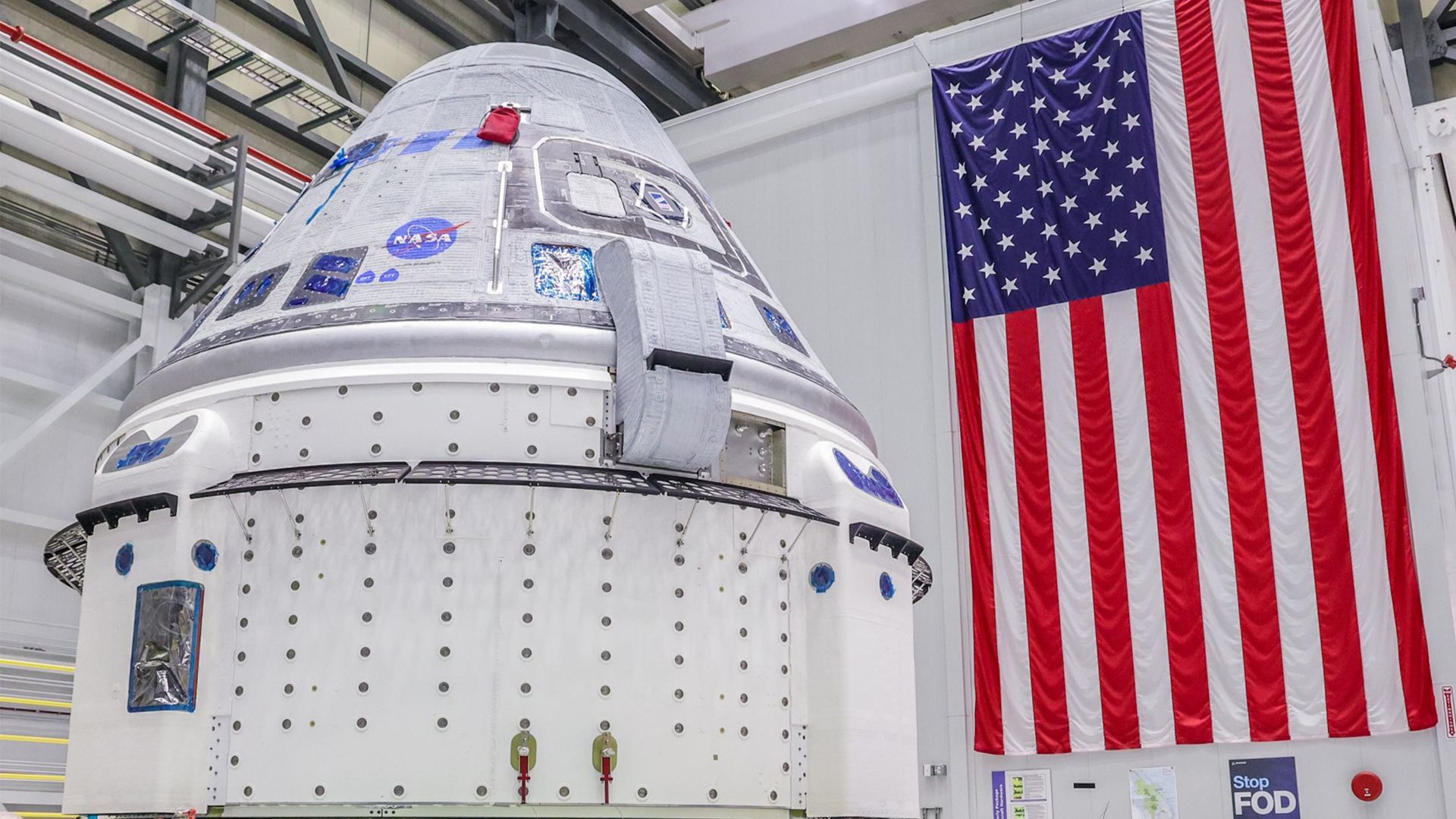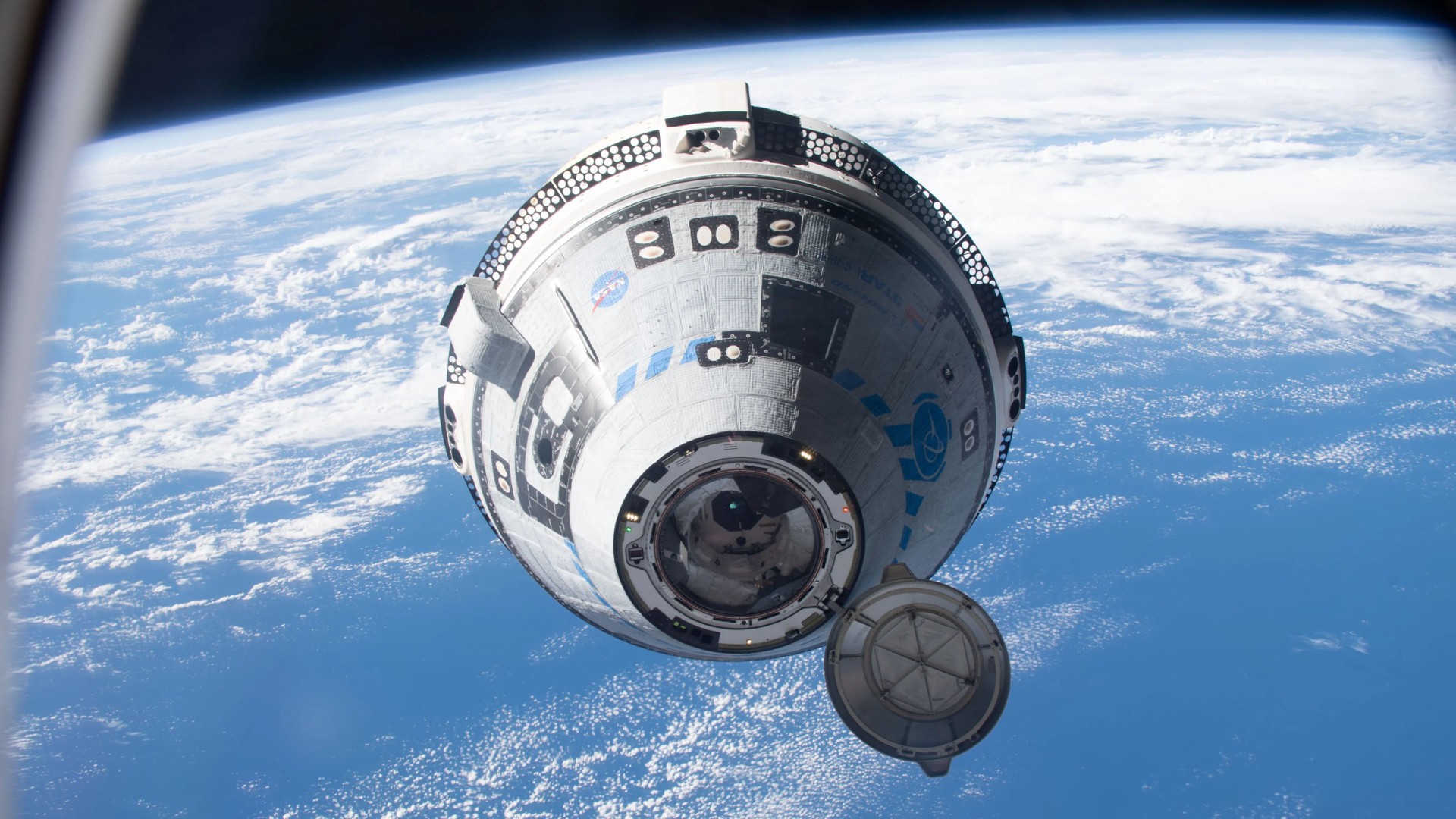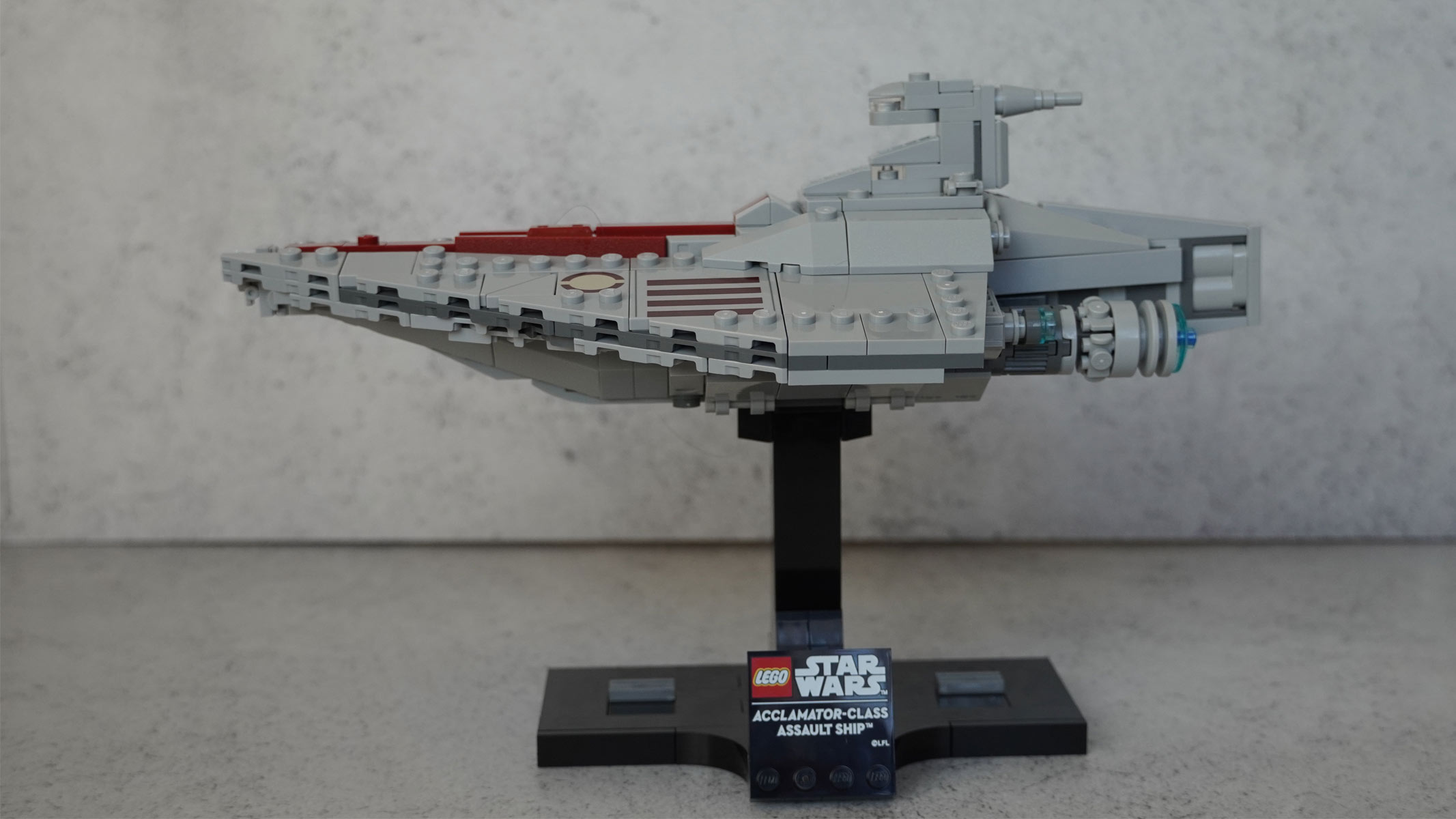
The first crewed launch of Boeing's new Starliner capsule has been delayed by an additional five days, to May 6.
NASA and Boeing had been targeting May 1 for the highly anticipated Starliner mission, which is known as Crew Flight Test (CFT). But that's no longer the plan.
"Following a review of the International Space Station operations, NASA's Boeing Crew Flight Test now is targeting no earlier than Monday, May 6, for Starliner's first launch with astronauts to the orbital complex," NASA officials wrote in an update on Tuesday afternoon (April 2).
"The date adjustment optimizes space station schedule of activities planned toward the end of April, including a cargo spacecraft undocking and a crew spacecraft port relocation required for Starliner docking," they added.
Related: NASA, Boeing delay Starliner capsule's 1st astronaut launch to early May
CFT will send NASA astronauts Barry "Butch" Wilmore and Suni Williams to the ISS aboard Starliner for a roughly 10-day stay. The mission will launch atop a United Launch Alliance Atlas V rocket from Florida's Cape Canaveral Space Force Station.
CFT will be the third orbital mission for Starliner, following two uncrewed flights to the ISS. The capsule failed to reach the orbiting lab on its first attempt, in December 2019, after suffering a number of glitches. But Starliner succeeded on its second try, reaching the ISS in May 2022.
Breaking space news, the latest updates on rocket launches, skywatching events and more!
It has taken longer than expected to get Starliner ready for its first astronaut flight. Boeing had to fix an issue with the capsule's parachute system, for example. And the company removed much of the tape the team used to wrap Starliner's wiring after discovering it was flammable.

In September 2014, both Boeing and SpaceX received multibillion-dollar contracts to fly NASA astronauts to and from the ISS.
SpaceX has already launched eight such operational missions for the agency, as well as a crewed test flight to the orbiting lab called Demo-2, which lifted off in May 2020. Despite SpaceX's success and reliability, NASA has long stressed the importance of getting a second private astronaut taxi up and running; redundancy is a key priority for the agency and its human spaceflight program.
Join our Space Forums to keep talking space on the latest missions, night sky and more! And if you have a news tip, correction or comment, let us know at: community@space.com.

Michael Wall is a Senior Space Writer with Space.com and joined the team in 2010. He primarily covers exoplanets, spaceflight and military space, but has been known to dabble in the space art beat. His book about the search for alien life, "Out There," was published on Nov. 13, 2018. Before becoming a science writer, Michael worked as a herpetologist and wildlife biologist. He has a Ph.D. in evolutionary biology from the University of Sydney, Australia, a bachelor's degree from the University of Arizona, and a graduate certificate in science writing from the University of California, Santa Cruz. To find out what his latest project is, you can follow Michael on Twitter.
-
Rob77 Reply
Probably cause majority of funds are going to the Starliner program than their passenger plane fleetbleibold said:Not much faith in a company that can't even produce safe planes to fly anymore. -
Torbjorn Larsson Replybleibold said:Not much faith in a company that can't even produce safe planes to fly anymore.
Boeing Defense, Space & Security (BDS) is a separate division from Boeing Commercial Airplanes (BCA), (and Boeing Global Services (BGS)).Rob77 said:Probably cause majority of funds are going to the Starliner program than their passenger plane fleet
BCA had an operating income of US$(1.6) billion (2023), BDS had US$(1.8) billion (2023).
